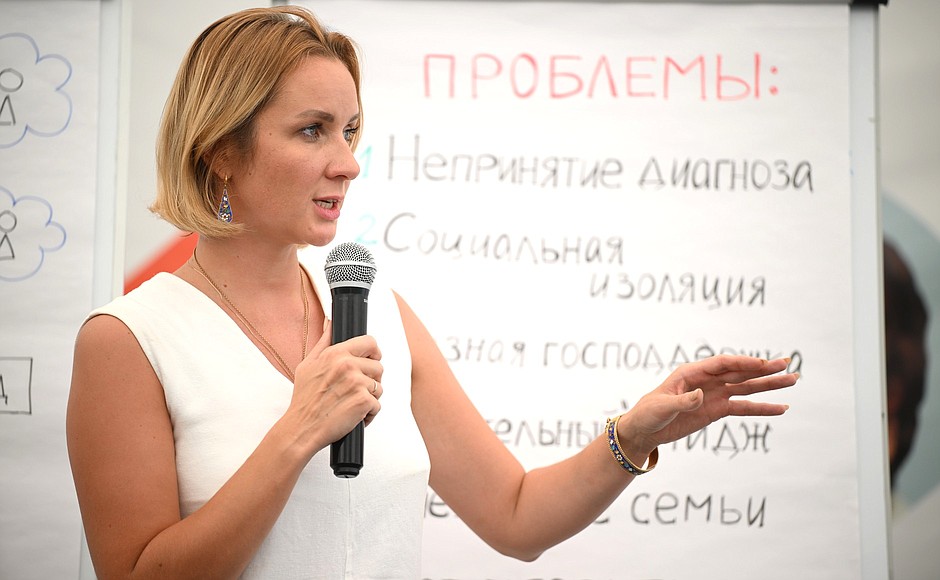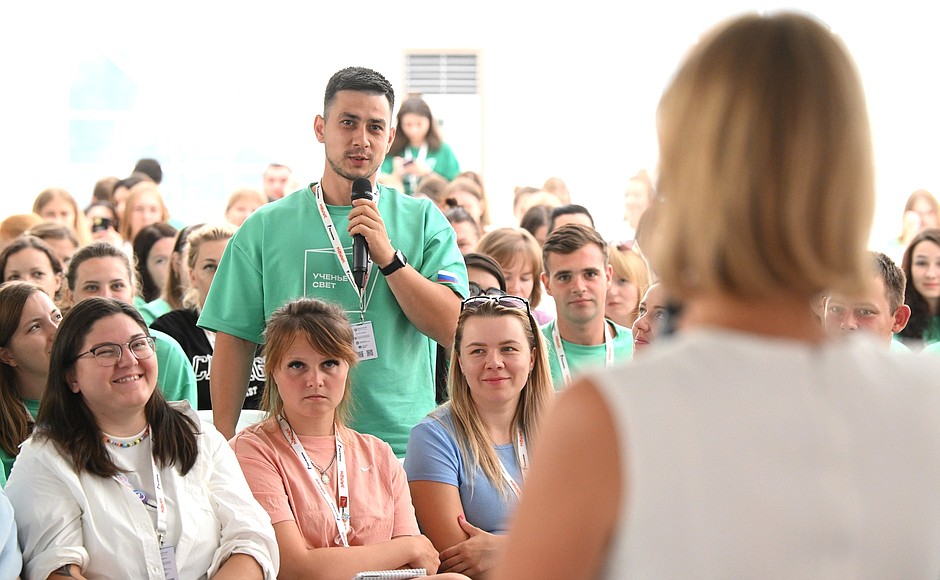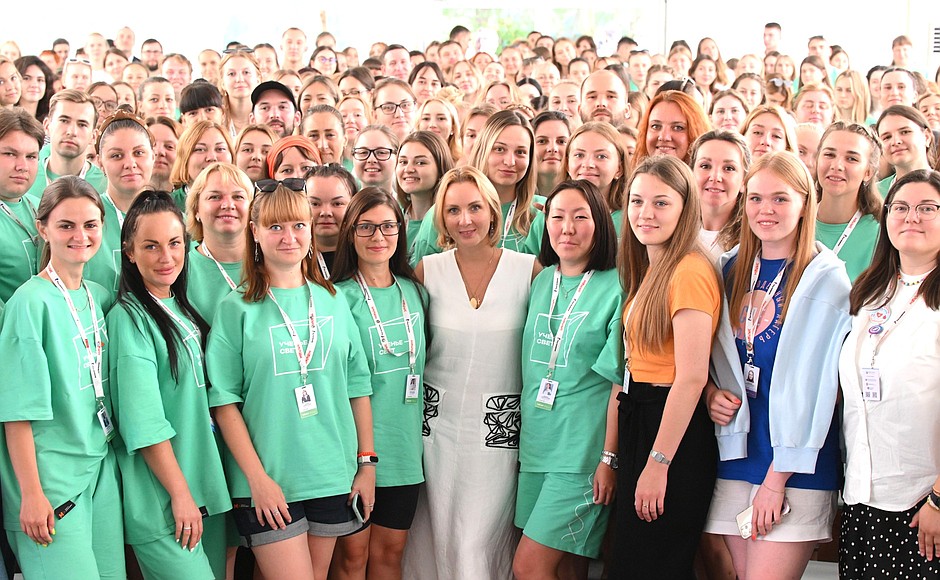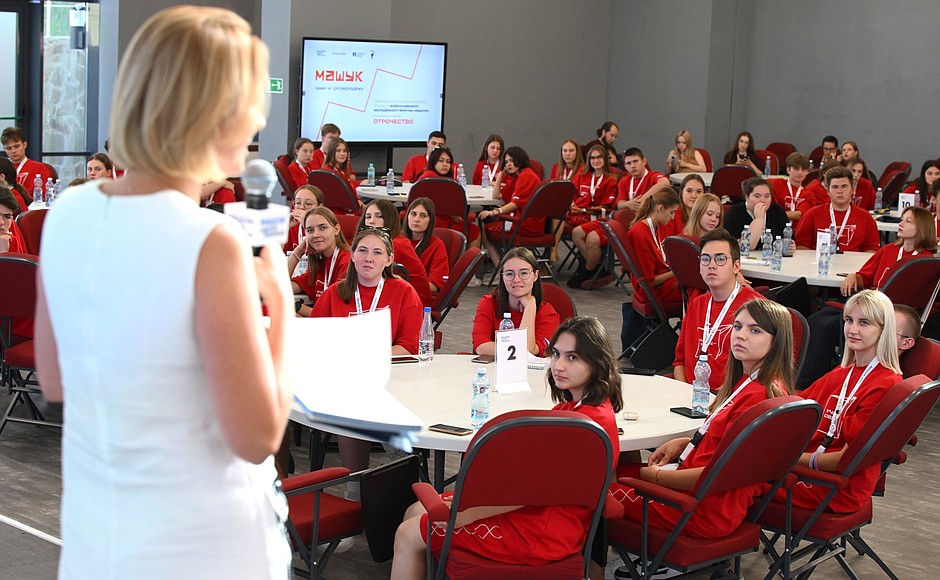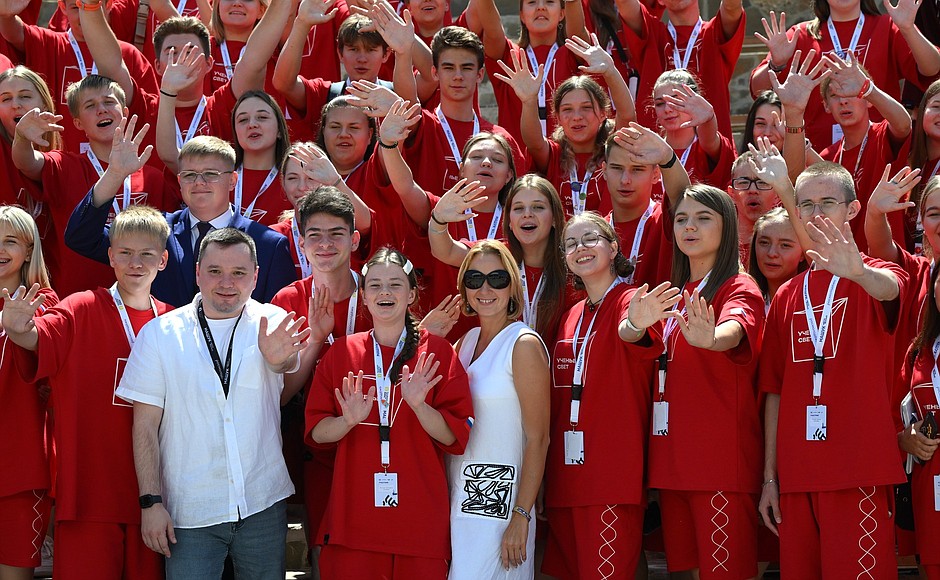The Talent track has been set up for the Children’s Rights Commissioner’s project titled Prevention of Social Orphanhood Among Children Under the Age of Four, which aims to reduce the number of little children placed in infant orphanages. This track offered a week-long training course to staff from children’s social institutions and commissions for juvenile affairs, as well as specialists working with children with disabilities, representatives of NGOs and students from core universities across 14 pilot regions.
The project to reduce the number of children under the age of four placed in infant orphanages is part of the Commissioner’s strategic programme Children in Families, which addresses the social orphanhood problem. The President has lent this programme his support. Maria Lvova-Belova said that this effort had already yielded its first results: within three months of its launch it helped return more than 30 babies to their families in the Stavropol Territory.
The Commissioner took part in an interactive discussion on the challenges facing this project. A total of 46 effective practices were proposed, which call for, among other things, structuring social work around individual strategies. Participants also spoke out in favour of devising a single algorithm for dealing with various situations and building a shared database of the best practices.
The results of this work will form the basis of a report titled Stable Families for a Stable Russia, which will sum up the ideas expressed at the forum. Maya Rusakova, who oversees the Talent track and is also member of the Children’s Rights Commissioner’s Public Council and Director of the Centre for Applied Sociology at St Petersburg State University, will lead a team of experts and moderators tasked with drafting the report.
Maria Lvova-Belova also took part in a session of the Talking of What Matters lesson, where she presented the Children in Families, Teenagers of Russia, Life-Long Support, and A Country for Children strategic programmes.
Teenagers who had enrolled in the forum’s shift on Adolescence shared projects targeting the Russian Movement of Children and Youth and aiming to draw more children into various associations and help them forge stronger ties with their parents.
These proposals included creating a chatbot to gather environment protection initiatives, creating an online platform to give lessons on dance and how to play musical instruments, setting up a hub to launch volunteer movements in small towns and villages, creating a series of psychology podcasts, holding an online crash course in acting, as well as organising the Now You’re Talking marathon during which adults will join their children in carrying out assignments to earn points on their Pushkin cards. There was also a proposal to hold a festival for foster families.
Maria Lvova-Belova praised the participants in this meeting for their creativity, judgement and commitment to delivering on their undertakings, while also emphasising that the ideas these youngsters had put forward were relevant, could help address real challenges, and had the potential to materialise.
